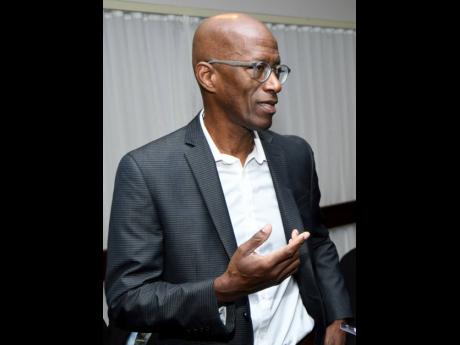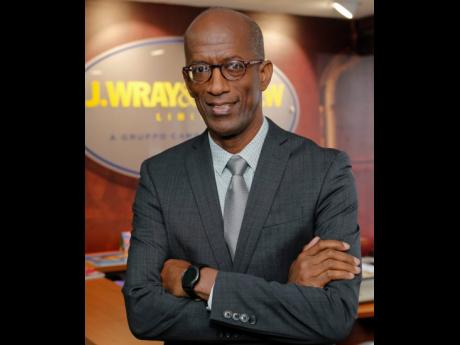As new SIA head, Jimmy Lawrence seeks reset of sugar sector
F or Clement ‘Jimmy’ Lawrence, life after sugar and rum appears to be about more sugar and rum. The recently retired chairman of rum maker and former sugar producer J. Wray...
F or Clement ‘Jimmy’ Lawrence, life after sugar and rum appears to be about more sugar and rum.
The recently retired chairman of rum maker and former sugar producer J. Wray & Nephew Limited, JWN, and chairman of the Spirits Pool Association, the umbrella group of distillers in Jamaica, is the new chairman of the Sugar Industry Authority, SIA, the government agency charged with recommending policies for the development of the local sugar sector.
He continues to lead the Spirits Pool and its molasses-importing subsidiary, Caribbean Molasses Company Limited.
Meanwhile, the chairmanship of JWN has been taken up by Mauro Caneschi, the regional managing director for the Americas within the Campari Group, JWN’s Italian owners.
Some three months into the SIA job, Lawrence is fresh from overseeing JWN’s exit from sugar production with the closure of its Appleton Estate factory in St Elizabeth and the recent divestment of sugar lands to a trio of former estate managers.
Among its responsibilities, the SIA is mandated to enforce the provisions of sugar industry legislation, including the Sugar Control Act, and recommend policies to ensure the viability of the sugar industry that is in rapid decline, with just two producers – Frome and Worthy Park – still grinding cane into the sweetener, an activity that has been part of Jamaica’s economic landscape for more than 500 years.
Sugar production has plummeted to less than the 40,000 tonnes estimated to be the local annual demand for raw sugar. SIA also oversees the trade in refined, or white sugar, which is imported both for manufacturing purposes and repackaged for the consumer market. None of the two factories make refined sugar.
The former JWN chairman has now set his sights on the survival of the sugar industry and brainstorming with industry stakeholders to eke out a financially viable path for sugar producers and small and large cane growers.
“The sugar industry is experiencing a very challenging period, but it still remains an important industry. There are stakeholders – the sugar cane farmers, the estates and the factories – who rely on it,” Lawrence told the Financial Gleaner in an interview.
Modernising the legal framework for the industry is early on the list of things to do for the new SIA chairman, who acknowledges that much of the original mandate of the statutory body has been eclipsed by the significant changes in the sector, locally and globally.
“What we want to do is to look at the industry and have it reconfigured and reset. Even from the legislative standpoint, the laws that exist now don’t really represent the operations as they are today. What we want to do is discuss with all the stakeholders – farmers, sugar factories, the Government – to make some recommendations which can see to the sustainability of the industry going forward,” Lawrence said.
Describing the industry as a mere skeleton of what it was before, Lawrence noted that the preservation of the benefits accruing from sugar, including import substitution and employment creation, is uppermost in his mind as he shoulders the new responsibility.
He has also not dismissed the notion of the importation of brown sugar to meet local demand if there is insufficient local production, but he stresses that such decisions can only be taken after a comprehensive assessment of the state of the industry and consultations with all stakeholders about their capacity and needs. He said the consultations have started and will be expedited.
Lawrence adds that while collaboration with other sugar producers in the Caribbean region is not off the cards, the local reset is the priority. He sees the possibility of such regional collaboration in the areas of technology, modernisation of manufacturing processes and, ultimately, overseas market penetration once Jamaica’s production levels have been successfully ramped up.
Addressing JWN’s exit from sugar, he asserted that JWN’s Appleton sugar estate set a standard and model for orderly and responsible retrenchment from the industry.
“JWN exited sugar, making sure that all stakeholder – employees, farmers, community – are taken care of. I don’t think there is a better example of care, concern and putting one’s money where one’s mouth is. I leave feeling particularly proud of Campari,” said Lawrence, who spent 25 years with JWN under the ownership of Campari and before that, the Lascelles deMercado conglomerate, with which he worked for 19 years in senior management before joining JWN.
The new SIA head is not convinced that further decline or death of the sugar industry is a given, but sees survival and immediate improved viability as tied to local demand for the commodity.
“I don’t think we should take an ultra-pessimistic view of sugar. There is consumption of sugar. There is the capability to make sugar from sugar cane and if we don’t do it, somebody else is going to do it. My focus is to find a way to make what remains of it sustainable. It also seems possible to have growth,” he suggests.
Lawrence is also tying long-term viability and any prospects of growth in the sector to perceived economic opportunities that can encourage greater investments by farmers, sugar producers, distilleries and others entrepreneurs who may be convinced to venture into areas such as increased molasses production for making spirits. The bulk of the molasses for rum making is now imported.
“If there are opportunities, investments will follow naturally. Where there is opportunity to make a profit, it becomes relatively easy to justify that investment,” said the SIA chairman.
Far from a slow-paced retirement, Lawrence, who says public service was encouraged from his early years by his mother, indicates that he is also assuming chairmanship for another statutory body, which he is not yet at liberty to name, as well as directorship of a local company he is also not yet identifying.
He remains a director of the JWN Foundation, the chairmanship of which he relinquished to Jean-Philippe Beyer, JWN’s managing director.


